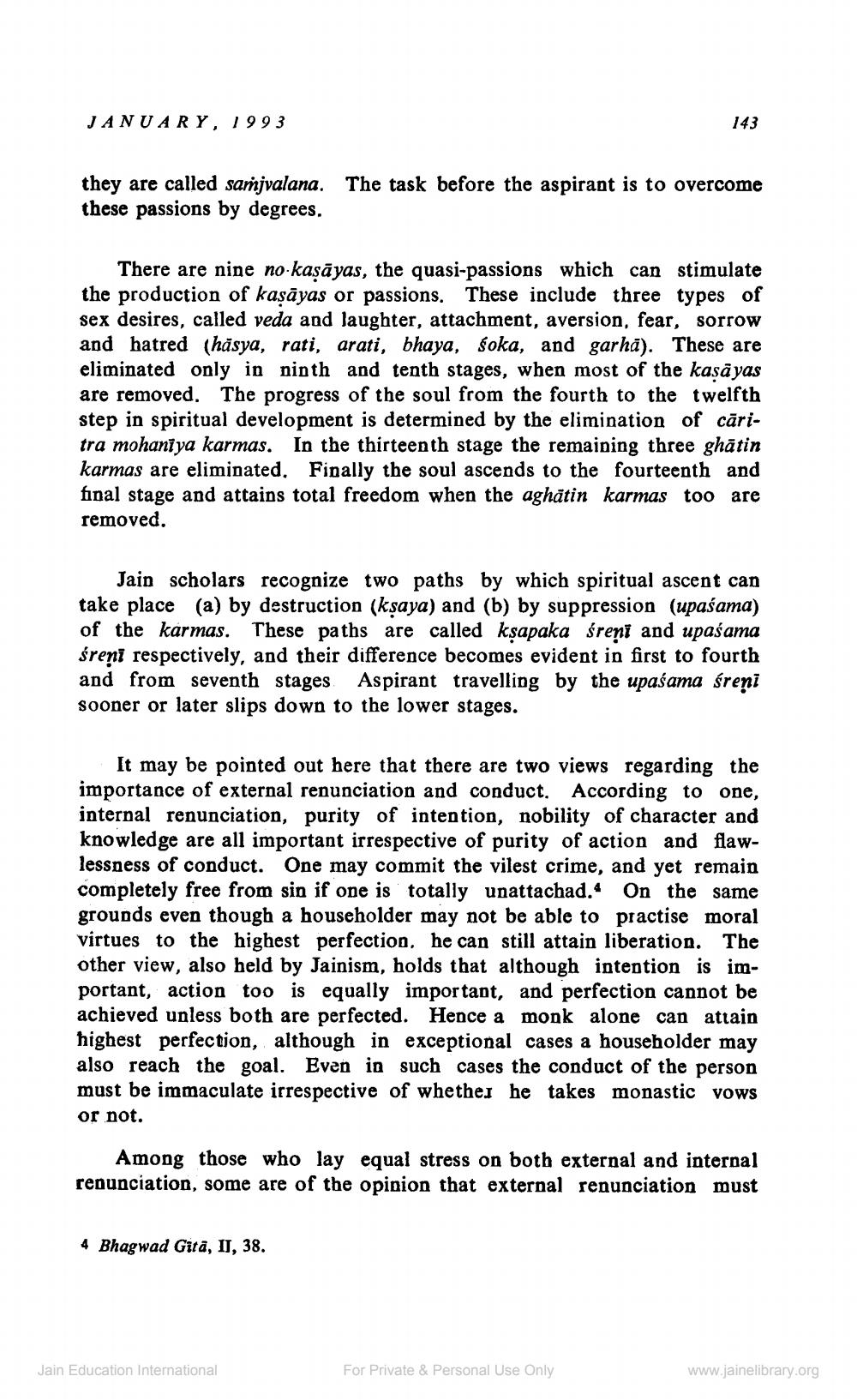________________
JANUARY, 1993
they are called samjvalana. The task before the aspirant is to overcome these passions by degrees.
There are nine no kaṣāyas, the quasi-passions which can stimulate the production of kaṣāyas or passions. These include three types of sex desires, called veda and laughter, attachment, aversion, fear, sorrow and hatred (hasya, rati, arati, bhaya, śoka, and garhā). These are eliminated only in ninth and tenth stages, when most of the kaṣāyas are removed. The progress of the soul from the fourth to the twelfth step in spiritual development is determined by the elimination of caritra mohaniya karmas. In the thirteenth stage the remaining three ghatin karmas are eliminated. Finally the soul ascends to the fourteenth and final stage and attains total freedom when the aghatin karmas too are removed.
143
Jain scholars recognize two paths by which spiritual ascent can take place (a) by destruction (kṣaya) and (b) by suppression (upaśama) of the karmas. These paths are called kṣapaka śreņi and upasama śreņi respectively, and their difference becomes evident in first to fourth and from seventh stages. Aspirant travelling by the upaśama śreņi sooner or later slips down to the lower stages.
It may be pointed out here that there are two views regarding the importance of external renunciation and conduct. According to one, internal renunciation, purity of intention, nobility of character and knowledge are all important irrespective of purity of action and flawlessness of conduct. One may commit the vilest crime, and yet remain completely free from sin if one is totally unattachad. On the same grounds even though a householder may not be able to practise moral virtues to the highest perfection. he can still attain liberation. The other view, also held by Jainism, holds that although intention is important, action too is equally important, and perfection cannot be achieved unless both are perfected. Hence a monk alone can attain highest perfection, although in exceptional cases a householder may also reach the goal. Even in such cases the conduct of the person must be immaculate irrespective of whether he takes monastic vows
or not.
Among those who lay equal stress on both external and internal renunciation, some are of the opinion that external renunciation must
4 Bhagwad Gitä, II, 38.
Jain Education International
For Private & Personal Use Only
www.jainelibrary.org




